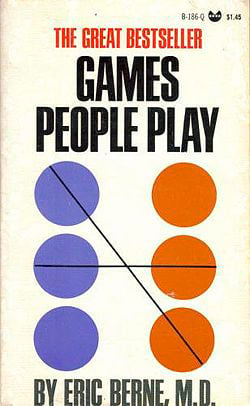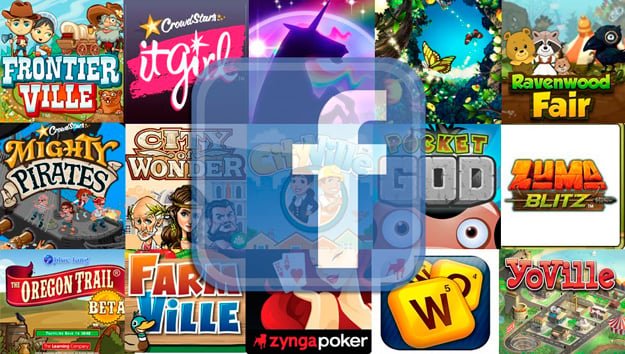
We've all received those annoying invitations to play games on Facebook. The games people play (and how frequently they play them) are often revealing clues into their behavior and personality. But there are some games played on Facebook that are equally as addicting, but not always as recognizable. I'm talking about the habitual games of discourse we play on each other, perhaps without even realizing it, on each other's Facebook walls.

In 1964, psychoanalyst, Eric Berne, published Games People Play, a thin book that outlined the different patterns of conversation that take place between two people. He called his method Transactional Analysis, and it became one of the most influential theories of personal communication of the 20th century. My students and I have been resurrecting TA in our research in media psychology. We have found that a great place to analyze transactions is on social media. As we will see, we are often playing games on Facebook without even knowing it. Here are a few of those games.
One of the most common games found in Berne's book and played on Facebook is called Now I Got You (NIGY). A typical transaction goes like this. Person A is looking to vent some anger on person B. Carefully watching for person B to make him/herself vulnerable for scrutiny, person A will wait for person B to make the mildest of transgressions against them, and then attack them for it. In his book, Berne illustrated it this way:
“White needed some plumbing fixtures installed, and he reviewed the costs very carefully with the plumber before giving him a go-ahead. The price was set, and it was agreed that there would be no extras. When the plumber submitted his bill, he included a few dollars extra for an unexpected valve that had to be installed—about four dollars on a four-hundred-dollar job. White became infuriated, called the plumber on the phone and demanded an explanation. The plumber would not back down. White wrote him a long letter criticizing his integrity and ethics and refused to pay the bill until the extra charge was withdrawn. The plumber finally gave in.”
The game here takes place when White uses the opportunity of the plumber's mild wrongdoing to vent disproportionate anger against the plumber. In NIGY, the game to watch for is when the smallest error gives license to a verbal attack.
From the outside, it is difficult to see that a game is taking place. Usually a person plays the same game over and over again with different people. They do not realize that they are playing these games because the game is serving some emotional need in them. In NIGY, the player gains a sense of justice and reinforces their role of victim.
Another common game we see on our Facebook walls is called Let's You and Him Fight. In this game, person A has two “friends” that hold opposing views. She will intentionally post an ambiguous statement or share an article that she knows will provoke both of these people in different ways. When one comments, the other reacts, and she enjoys the show. Yes, some people enjoy setting up and watching real-life drama.

In another game called See What You Made Me Do, one posts on their wall about how somebody in his life continues to be the reason for all of their misfortune. Often it is an ex-lover or a parent. In this game, the player gains a sense of freedom from responsibility by scapegoating someone else for his or her own poor decisions. The big payoff here is being victim and persecutor.
There is an old saying that “unsolicited advice is always self-serving.” Some of our Facebook friends are in the habit of offering advice when it is not asked for. The game here is one of control. By offering a suggestion as to how one can better their situation, the player positions herself in a place of superiority; an opportunity to talk down to another under the guise of helpfulness.
In his book, Berne pointed out that we take on one of three ego states in any given transaction. We can speak from the Parent (authoritative or nurturing) ego state, the Child (naturally expressive or adaptively submissive), or the Adult (logical and non-reactive) ego state. Most of us respond in predictable patterns. When spoken to from the Adult position, some of us will typically respond from the Child state, secure in the submissive position, free from having to take any responsibility for ourselves. This is accomplished through a “following orders” form of authority; when I failed, I was just “taking your advice.” Sometimes we see a Parent-to-Parent transaction. This happens when one person speaks from a position of Parent and the other responds, not as a submitting Child, but from a confrontational Parent. “Who do you think you are?” is the common Parent-Parent response. It becomes an argument, a posturing for superiority.
How does one get out of playing games on Facebook? The first step is recognizing games when they are being played, and recognizing the games that certain people use habitually. Once you have become aware of the game, the only way to respond is from a logical, or Adult ego-state. If you are able to see through the game and refuse to play along, you have ended the game.
















